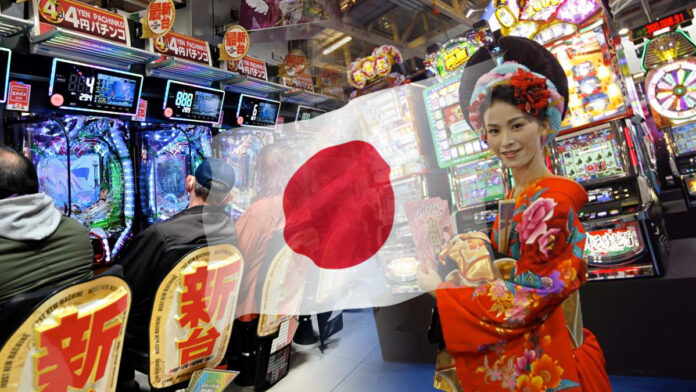In an era marked by the confluence of tradition and digital innovation, Japan stands at a crucial intersection, grappling with the intricate legalities that emerge in the realm of digital entertainment. This prelude introduces an in-depth examination of the nuanced legal landscape that governs the digital domain, with a particular focus on the evolving sector of online gambling. Delving into historical precedents, societal impacts, and the challenges of crafting a coherent regulatory framework suitable for the digital age, this discussion aims to shed light on the complex interplay between cultural values, ethical considerations, and technological advancements. As we navigate through this discourse, culminating in a detailed exploration of the status and future possibilities surrounding Japanese online casinos, we aim to provide a comprehensive understanding of the delicate balance that Japan must strike between embracing innovation and maintaining regulatory integrity in the face of digital transformation.
Historical Context of Gambling in Japan

Gambling in Japan has a long and complex history that is deeply intertwined with the country’s cultural and social fabric. Historically, various forms of gambling have been present in Japanese society, ranging from traditional games of chance to more modern iterations.
One of the earliest recorded forms of gambling in Japan dates back to the Edo period (1603-1868), where popular games such as hanafuda, a type of card game, gained widespread popularity among the masses. However, during the Meiji Restoration in the late 19th century, gambling faced increased scrutiny as the government aimed to modernize and control various aspects of society. As a result, many forms of gambling were restricted or banned altogether. Despite these regulations, underground gambling dens continued to flourish, albeit clandestinely.
In contemporary Japan, gambling laws remain strict, with only certain forms of betting, such as horse racing, pachinko, and certain sports betting, being legalized under specific conditions. The historical context of gambling in Japan reflects a complex interplay between tradition, regulation, and societal attitudes towards games of chance.
However, recent developments, such as the passage of the IR Promotion Law, indicate a trend toward allowing certain types of gambling, particularly land-based casinos. Nonetheless, the legal status of online gambling presents a stark contrast, highlighting the difficulties in transferring existing legislation to the digital age.
Legal Framework for Online Gambling in Japan

The legal landscape governing online gambling in Japan is primarily shaped by the provisions of the Criminal Code, enacted in 1907, which broadly prohibits most forms of gambling activities. However, the Code fails to explicitly address the rapidly evolving realm of online gambling, leaving a significant regulatory gap that has become increasingly challenging to navigate in the digital age.
The absence of clear legislative guidelines specific to online gambling has created uncertainty and ambiguity regarding its legality and regulation. Moreover, the lack of a comprehensive licensing and regulatory framework further complicates the issue, allowing for a proliferation of offshore operators targeting Japanese consumers without adequate oversight or consumer protection measures in place.
Case Studies and Precedents

In March 2016, amidst increasing attention towards online casinos, there was an incident in which operators and customers of an online casino were arrested and prosecuted in Japan. Let’s take a closer look at this event, which had a significant impact on the entire industry.
This was the first case in Japan where an online casino without a physical presence was targeted, yet the targeted casino had obtained a license legally from British authorities. However, one reason that led to the crackdown might be attributed to the fact that it offered services tailored specifically to Japanese people, including tables with live dealers who were Japanese and services provided in Japanese.
Additionally, three users of the casino were also arrested in this case. Since online casinos lack physical premises, it becomes challenging for the police to arrest users in flagrante delicto on the spot. However, identification of these users seems to have been made possible through access logs to servers and transaction records such as credit cards.
Of the three arrested users, two were fined after being prosecuted summarily for simple gambling offenses, while the remaining one chose not to accept summary prosecution and consequently received a “non-prosecution disposition.” (Meaning they avoided paying fines and also have no criminal record in this matter.) This outcome could also be seen as a good precedent indicating the current position of online casinos.
Public Perception and Social Implications

Public attitudes towards online gambling in Japan are mixed, reflecting broader concerns about societal values and public welfare.
While some advocate for the legalization and regulation of online casinos as a means of generating revenue and addressing illicit gambling, others express apprehension about the potential social harms associated with expanded gambling opportunities, including addiction and financial exploitation. Proponents of legalization argue that a regulated online gambling industry would provide better protection for consumers, with measures in place to prevent underage gambling, promote responsible gaming, and offer resources for those struggling with addiction.
They also point to the potential economic benefits, such as job creation and increased tax revenue, that could result from a regulated online gambling market.
Conversely, opponents raise concerns about the normalization of gambling behavior, particularly among vulnerable populations, and the potential for increased problem gambling rates. They argue that the convenience and accessibility of online gambling could exacerbate issues of addiction and lead to financial hardship for individuals and their families.
Additionally, there are broader societal implications to consider, including the impact on community values and social cohesion. As debates continue over the legalization and regulation of online gambling in Japan, it is crucial to weigh these competing perspectives and carefully consider the potential consequences for individuals and society as a whole.
Proposed Solutions and Future Prospects

To navigate the legal complexities of Japanese online casinos, policymakers must consider pragmatic solutions that balance regulatory objectives with industry innovation. Clear and coherent regulations, coupled with robust enforcement mechanisms, are essential for fostering a safe and transparent online gambling environment.
One potential solution is the establishment of a dedicated regulatory authority tasked with overseeing the licensing and operation of online gambling platforms. This authority could develop and enforce strict guidelines to ensure compliance with responsible gaming practices, including measures to prevent underage gambling, protect player funds, and address problem gambling behavior.
Furthermore, collaboration with international regulatory bodies and sharing best practices can help Japan align its regulations with global standards while addressing unique cultural and societal considerations.
In parallel, efforts to raise public awareness about the risks and benefits of online gambling are crucial for promoting informed decision-making among consumers. Educational campaigns, helpline services, and support programs can empower individuals to make responsible choices and seek help if needed.
Looking ahead, the legalization and regulation of online gambling in Japan present opportunities for innovation and economic growth, but it also necessitates careful consideration of the potential social and ethical implications. By adopting a proactive and collaborative approach, policymakers can create a sustainable framework that balances the interests of stakeholders while prioritizing public health and well-being.
Conclusion
The legal landscape of Japanese online casinos is fraught with complexities, reflecting the broader challenges of reconciling traditional values with technological advancements. As Japan grapples with the complexities of regulating online gambling, stakeholders must collaborate to develop pragmatic solutions that prioritize consumer protection, promote responsible gambling practices, and foster a fair and competitive market. By addressing legal ambiguities and embracing regulatory innovation, Japan can chart a course towards a more transparent and sustainable online gambling industry.







